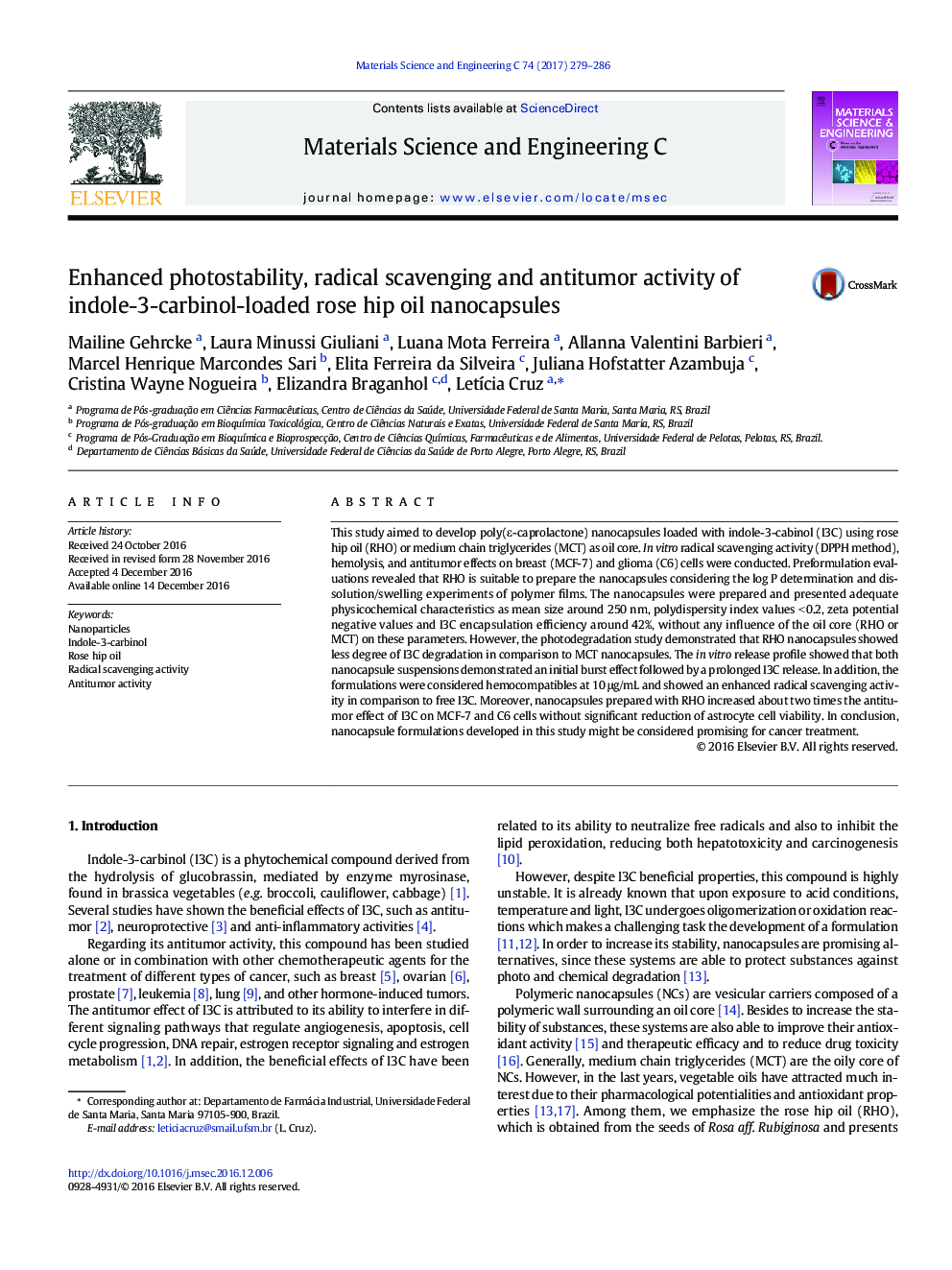| کد مقاله | کد نشریه | سال انتشار | مقاله انگلیسی | نسخه تمام متن |
|---|---|---|---|---|
| 5435029 | 1509147 | 2017 | 8 صفحه PDF | دانلود رایگان |

- I3C-loaded PCL nanocapsules using two oil cores were successfully developed.
- Nanocapsules protected I3C from photodegradation.
- I3C-loaded nanocapsules presented biphasic release profile and were hemocompatible.
- Nanocapsules increased radical scavenging ability and antitumor effect of I3C.
- I3C and nanocapsules did not induce toxicity in primary astrocyte cells.
This study aimed to develop poly(ε-caprolactone) nanocapsules loaded with indole-3-cabinol (I3C) using rose hip oil (RHO) or medium chain triglycerides (MCT) as oil core. In vitro radical scavenging activity (DPPH method), hemolysis, and antitumor effects on breast (MCF-7) and glioma (C6) cells were conducted. Preformulation evaluations revealed that RHO is suitable to prepare the nanocapsules considering the log P determination and dissolution/swelling experiments of polymer films. The nanocapsules were prepared and presented adequate physicochemical characteristics as mean size around 250 nm, polydispersity index values < 0.2, zeta potential negative values and I3C encapsulation efficiency around 42%, without any influence of the oil core (RHO or MCT) on these parameters. However, the photodegradation study demonstrated that RHO nanocapsules showed less degree of I3C degradation in comparison to MCT nanocapsules. The in vitro release profile showed that both nanocapsule suspensions demonstrated an initial burst effect followed by a prolonged I3C release. In addition, the formulations were considered hemocompatibles at 10 μg/mL and showed an enhanced radical scavenging activity in comparison to free I3C. Moreover, nanocapsules prepared with RHO increased about two times the antitumor effect of I3C on MCF-7 and C6 cells without significant reduction of astrocyte cell viability. In conclusion, nanocapsule formulations developed in this study might be considered promising for cancer treatment.
94
Journal: Materials Science and Engineering: C - Volume 74, 1 May 2017, Pages 279-286